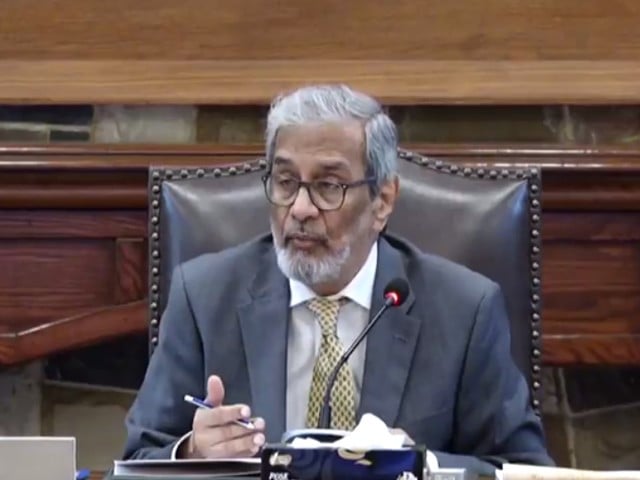Caretaker Chief Minister Sindh, Justice Retired Maqbool Baqar has emphasized that the teaching profession is the backbone of any nation and a strong teaching workforce is crucial for the sustainable development of any country. According to him, a nation’s sustainable development is reliant on the strength and capacity of its teachers who have the potential to shape the future and elevate society.
The state-run public school system in Pakistan has faced multiple challenges related to infrastructure, lack of funds, inadequate resources, shortage of trained teachers, and a lack of quality education. Issues such as overcrowded classrooms, outdated curricula, socio-economic disparities, and religious segregation have contributed to the degradation of the education system and radical fall in literacy rate in the country. After the 18th amendment, education became a provincial subject and the provincial government allocates funds and oversees educational activities within its jurisdiction whereas the federal government and Higher Education Commission perform a regulatory and liaison role at the federal level. Article 25A of the Constitution of Pakistan assures the provision of free & compulsory education up to the secondary level to all children but a polarized educational environment and multiple education systems together with four disciplines of religious education under the Pakistan Madrasah Education Board. Amid such a diverse and complicated educational landscape, improvement in literacy and raising education standards is an all-time and gigantic challenge for administrators.
The successive governments undertook several steps to address education-related issues through reforms aimed at the construction of new schools, induction of qualified teachers, refresher courses of faculty, curriculum updates, and access to quality education for all students including girls. However, financial and administrative issues along with institutional corruption have always marred governments’ efforts. The government also encouraged public-private partnerships and introduced awareness campaigns to emphasize the importance of education, especially for girls and older people. However, there is a dire need for a massive budget increase, induction of highly qualified teachers, and introduction of a countrywide single curriculum at all levels for multiple years, so a huge setback in the education sector might be recouped in the future.







